01 Jan Continuing Autoharp with Leah Dolgoy: The Carter Family Legacy
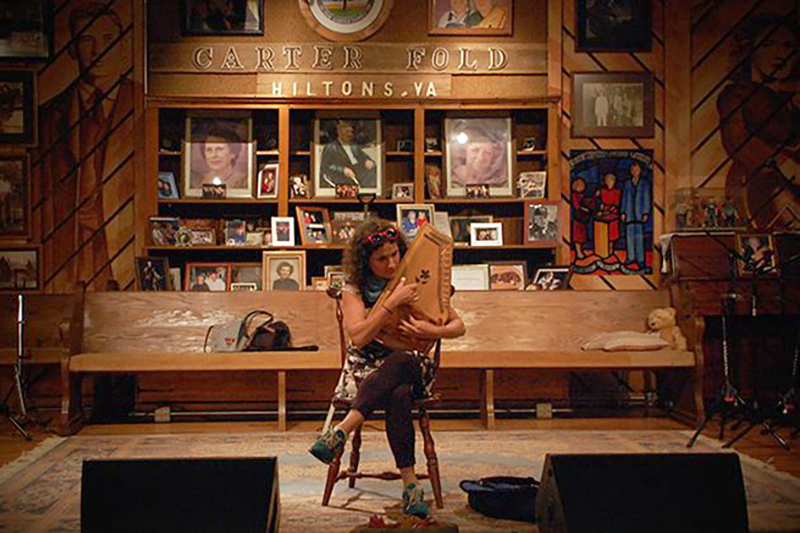
Leah Dolgoy on the stage of the Carter Fold.
This April 2023, the sweet-stringed sounds of Leah Dolgoy’s autoharp will once again fill the Folk School campus with joy and magic. She returns to Brasstown to teach a music class focusing on the legacy of the Carter Family for continuing autoharpists. Leah is a two-term student host and returning instructor at the Folk School, she considers Appalachian old-time music to be her true love, and Brasstown a second home.
CP: When did you first hear the autoharp and what drew you to it?
LD: I first heard the autoharp when a Canadian singer songwriter named Basia Bulat played it. I was actually at home with a fever, recovering from mononucleosis, and listening to a live broadcast of Basia’s concert on the CBC. I was immediately drawn to the instrument because of its unique sound. I remember listening intently and trying to figure out what it was that she was playing. I was totally mesmerized.
CP: Is the autoharp mostly a solo instrument or do you like to play with other people?
LD: The autoharp can be either a solo instrument used to accompany yourself singing, or it works beautifully in an ensemble or a jam. I play it both ways but I certainly have a preference for playing with others.
CP: You play autoharp in some indie folk bands, Corinna Rose and Heirloom. How do fans and show-goers respond to the autoharp?
LD: The autoharp is quite a rarity in the Canadian folk scene and so I end up doing a lot of population education and public service announcements about the instrument (which I love). I often tell people at shows that they are welcome to come up and try it and ask questions after our set. I keep a set of guest picks in my case and show people the basics. It is very satisfying to watch peoples’ faces light up when they realize how simple it is to get a beautiful sound out of the instrument. Of course to play it skillfully takes some time and practice but I know of no other instrument where you can make this kind of instant connection.
CP: Autoharp first brought you to the Folk School. Can you talk about that and how your relationship with the Folk School has evolved over the years?
LD: I first came to the Folk School for an autoharp class in January 2010. Since then, I have spent about a cumulative year at the Folk School, and the school has had a profound affect on my life and musical career. Brasstown feels like a second home, and every time I come back I feel more and more connected to it. I am absolutely delighted to have the opportunity to teach autoharp this coming spring.
(Enjoy a video of Leah playing the Carter classic, “Bury Me Beneath The Willow”)
CP: Why did you pick the legacy of the Carter Family to be a focus of your class?
LD: I named my first autoharp June (after June Carter, of course). The Carter family is so important to the autoharp, that it is most peoples’ best reference for the instrument. The autoharp: as in “Maybelle Carter” or as in “the instrument that Johnny Cash’s wife June played.” The autoharp is the Carter Family for most people.
The Carter Family repertoire is vast, rich with beautiful and tragic storytelling, and provides such a strong base of songs to learn, and stories to explore. Many Carter Family songs are so universal that we think of them as traditional. They are perfect to learn as standards to bring to a jam (e.g. “Worried Man Blues,” “Will the Circle Be Unbroken”). Equally there are lesser known little gems to practice melody playing technique, find harmony, or better understand life in Appalachia: both the dark aspects and more lighthearted points. For example, Sara Carter used to sing a song called “Chewing Gum” that poked fun at the emerging middle class:
“I wouldn’t marry a lawyer, I’ll tell you the reason why,
Every time he opens his mouth, he tells a great big lie.
I wouldn’t marry a doctor, I’ll tell you the reason why,
He rides all over the country and makes the people die.
I took my girl to church last night, what do you think she done?
She walked right up to the preacher’s face and chawed her chewing gum”
Finally, I also think that there has been an emphasis (thanks to incredible players like Karen Mueller, and the wonders of YouTube videos) on learning to pick out complicated fast fiddle tune melodies on the autoharp. I absolutely love playing fast fiddle tunes. However, I am excited to go back to basics and the roots of the instrument and spend a week focused on songs and building musicianship, really getting into the artistry that is the simplicity of the instrument.
CP: Have you ever been to the Carter Family Fold? What was that like?
LD: It was like a pilgrimage for me: totally thrilling. My band also had a little opening slot booked there for a Saturday night concert last year. It was unfortunately cancelled due to weather, but I look forward to getting back there, and highly recommend it.
CP: Who should take your class? What sort of experience should you have with the autoharp?
LD: The class is listed as Level 2/3 meaning it is aimed at Continuing/Intermediate players. I think the course material lends itself to welcoming students with a broad range of levels. About a month before the course begins I will send out a survey to the students asking more about their experience and what they are excited about working on. This way, I can tailor the class to their goals. We will be using the Carter Family repertoire to work on different techniques and skills. We are also going to take little breaks to listen to field recordings, watch archival video footage, and maybe peruse Mother Maybelle’s cookbook. I might try to whip up some of Maybelle’s recipe for corn bread to bring to class. There will be time set aside for short private lessons, and lots of time for exploring the instrument. For example, if people want to learn how to change strings, and cut new chord bars, we can do that. It’s going to be fun.
CP: Do you have any advice for aspiring autoharp players?
LD: Keep your autoharp out in plain sight. Don’t store it away in a closet or under your bed. You are more likely to play it if you can see it.
Play songs you love. Music should be joyful.
Find a friend who plays another instrument and get together with them regularly to play. The autoharp has a great range of tone and texture. Explore how it fits with a guitar, a banjo or a flute and what you can learn from others.
Leah’s upcoming class:
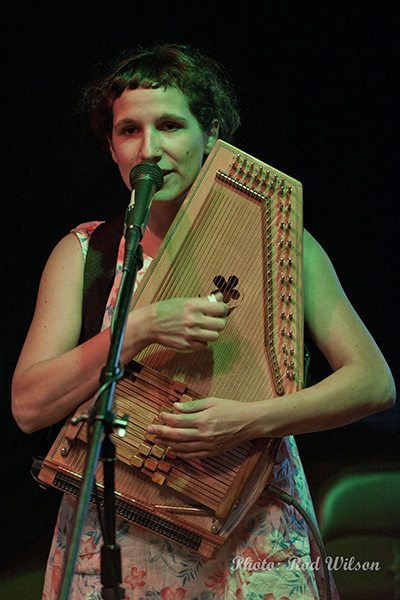 Continuing Autoharp: The Carter Family Legacy
Continuing Autoharp: The Carter Family Legacy
April 9–15, 2023
The Carter Family is to the autoharp as Earl Scruggs is to bluegrass banjo: legendary. Explore Carter Family standards, as well as some lesser-known tunes, to develop playing technique in basic melody and rhythm accompaniment. Along with playing and instruction time, enjoy old field recordings and video footage. We’ll sing, practice using the instrument to pick out harmonies, load you up with jam-friendly tunes, and maybe even try out what the autoharp sounds like electrified. Continuing and above autoharpists welcome.



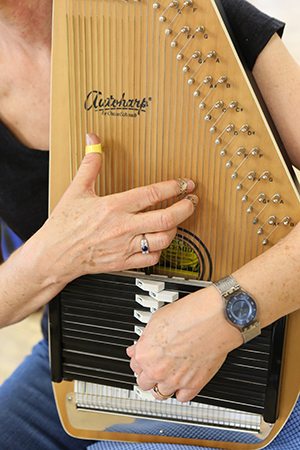
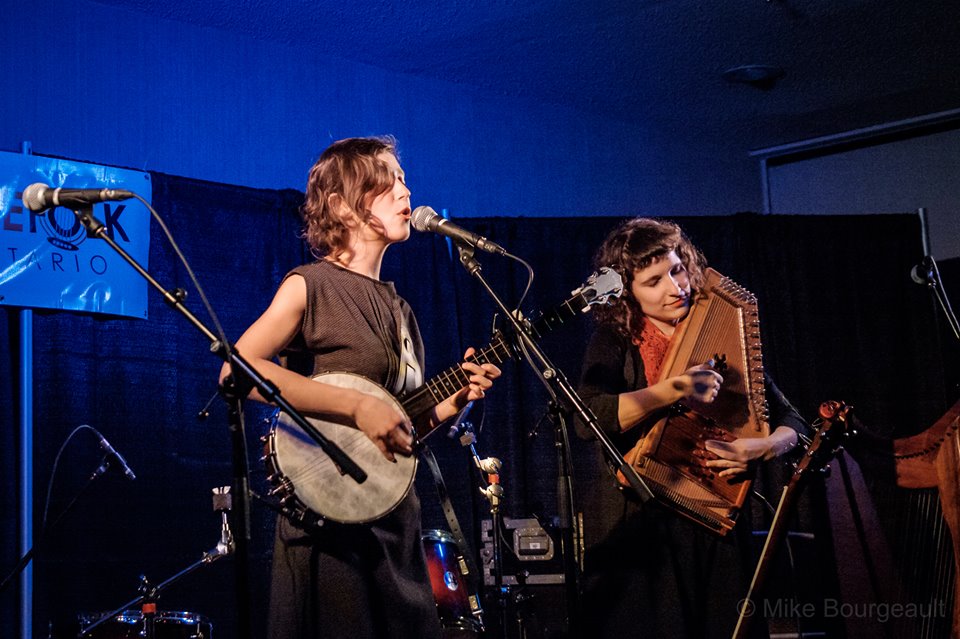
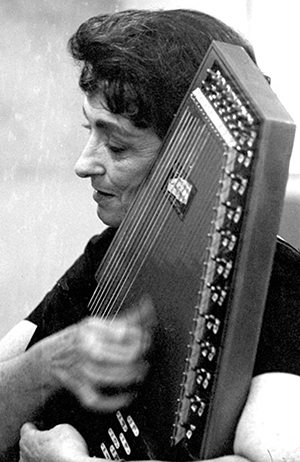
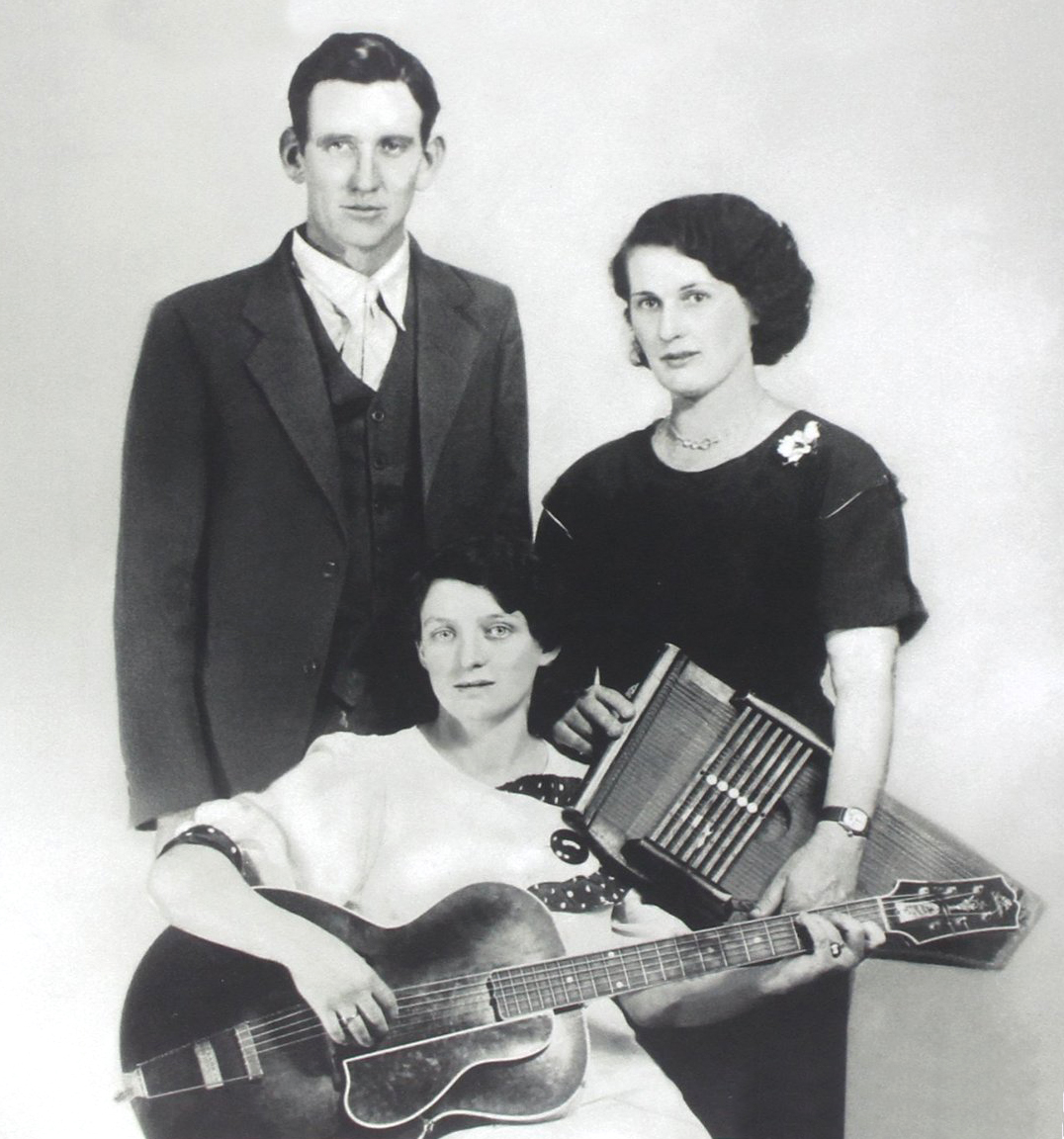
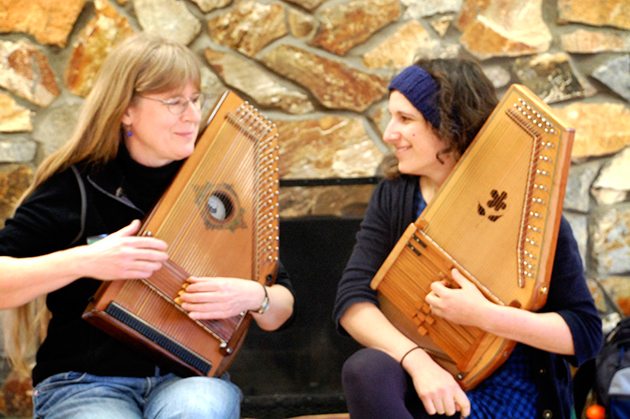
katherine isgren
Posted at 15:58h, 23 SeptemberI am interested in your classes?? online or Skype or come for a school? i just found this website looking for Maybelle Carter autoharp lessons.. I am a bluegrass player and just got a wonderful autoharp and taking lessons. I want to play like Maybelle an Sara and most teachers will not concentrate on the bluegrass genre…. thank you, katherine